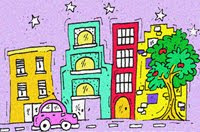
According to the website http://www.philippine-portal.com/, the country has around 170 dialects spread across 7,100 islands. Talking about pronunciation and accents in the Philippines can be a very sensitive topic as our people are very regionalistic. Friends take pride in being Bisaya, Cebuano, Ilocano, Ilonggo, Kapampangan or whatever culture they were born into. Along with this, they take pride in the dialect that they speak. Many of them have English as their second language, and Filipino as their third.
Some students claim the only time they learned Filipino was when they moved to Manila to study. When I lived up north, many of the people I dealt with spoke either Ilocano or English, I noticed the elder residents barely spoke Filipino. Even they themselves claim there are also other people in their region they do not understand as different dialects are spoken among the numerous tribes and provinces. Students who hail from Cebu say not many of their friends are proficient in Filipino but have English as their second language. Also, many of the people who love their own dialects cannot seem to accept Filipino as their official language. For those who are not familiar with the various sounds of the Philippines, the numerous dialects vary greatly in sound, word formation, grammatical structure, intonation and pronunciation.
Could this be one of the reasons why many writers lament that the Filipino language cannot be the official language because it never really evolved through the centuries? I'd really like to take a closer look at language evolution in the Philippines from a more historical perspective.
Some students claim the only time they learned Filipino was when they moved to Manila to study. When I lived up north, many of the people I dealt with spoke either Ilocano or English, I noticed the elder residents barely spoke Filipino. Even they themselves claim there are also other people in their region they do not understand as different dialects are spoken among the numerous tribes and provinces. Students who hail from Cebu say not many of their friends are proficient in Filipino but have English as their second language. Also, many of the people who love their own dialects cannot seem to accept Filipino as their official language. For those who are not familiar with the various sounds of the Philippines, the numerous dialects vary greatly in sound, word formation, grammatical structure, intonation and pronunciation.
Could this be one of the reasons why many writers lament that the Filipino language cannot be the official language because it never really evolved through the centuries? I'd really like to take a closer look at language evolution in the Philippines from a more historical perspective.





No comments:
Post a Comment